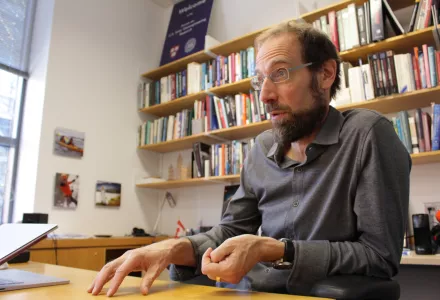Energy Policy Seminar: David Keith on "How to Cool the Planet"
Join us for the next Energy Policy Seminar of the 2021 Fall Semester featuring David Keith, Professor of Public Policy, Harvard Kennedy School. Professor Keith will present "How to Cool the Planet: comparing the political and physical risks of carbon removal and solar geoengineering". HKS Professor Henry Lee will moderate the discussion and Q&A.
Attendance: This event is open to the public and hosted on Zoom.

